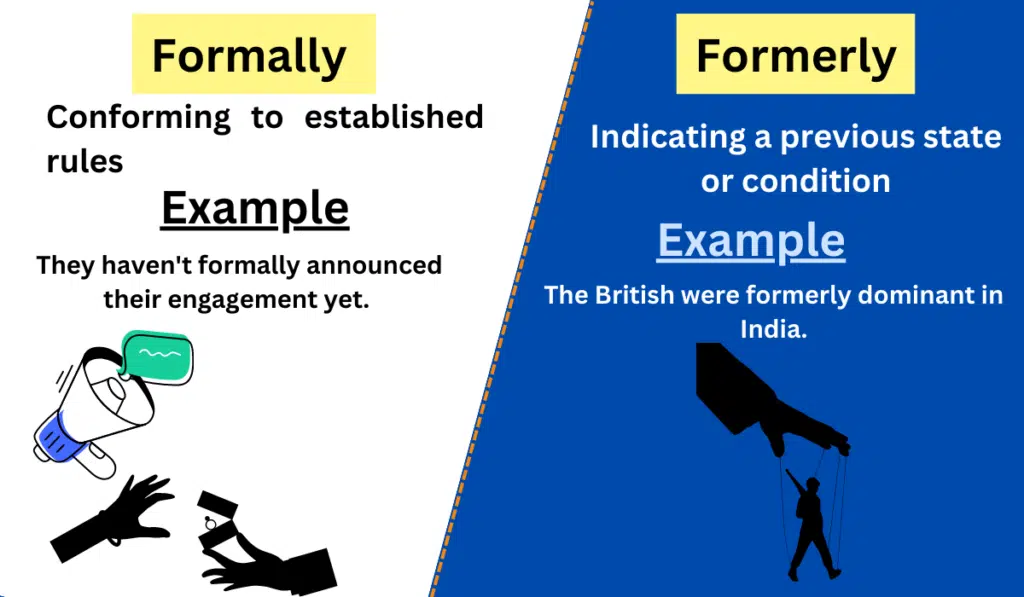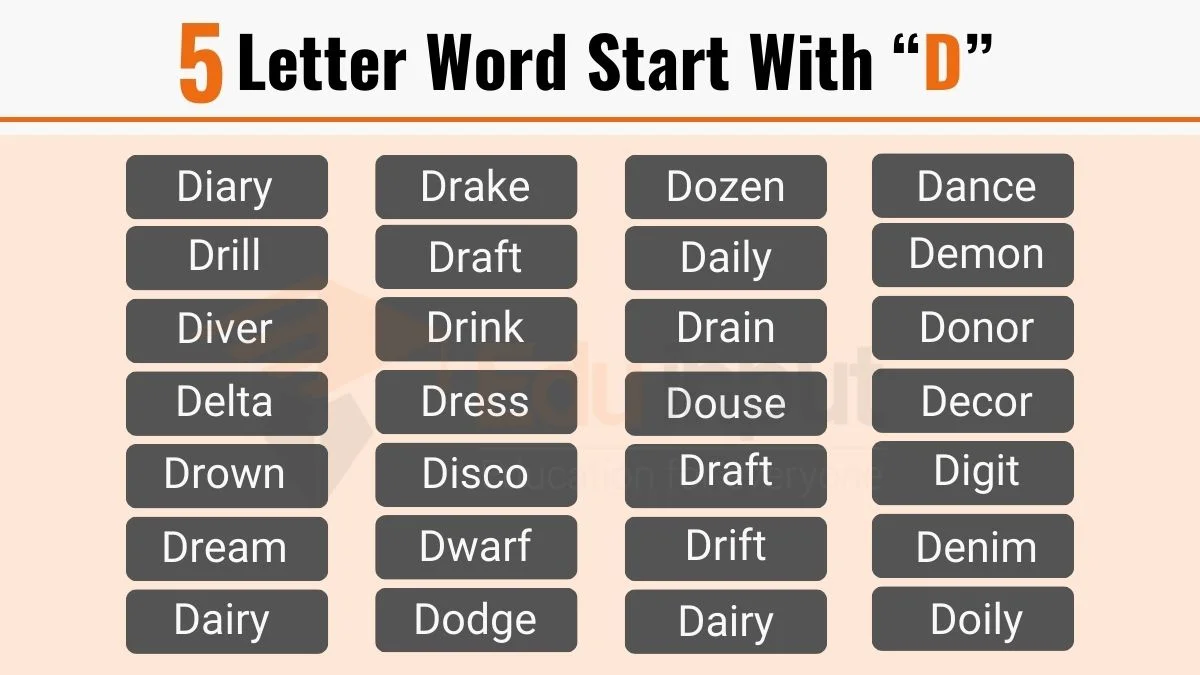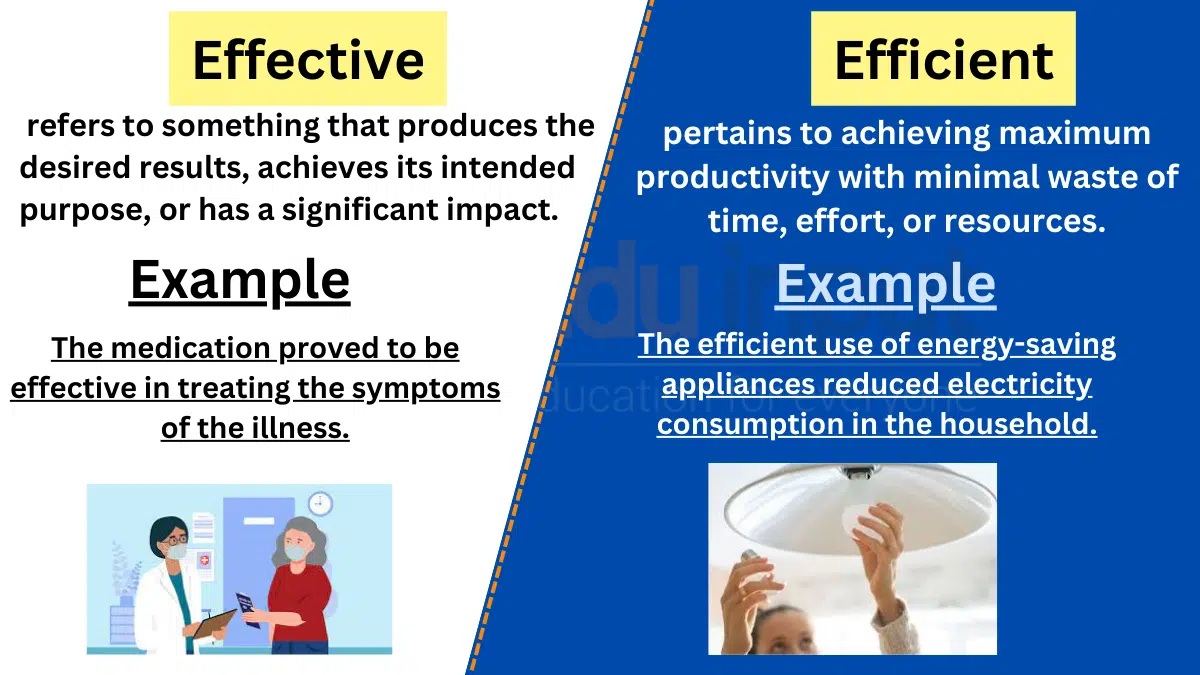Formally vs. Formerly-Difference between and example
In the English language, words with similar spellings or sounds can often cause confusion. One such pair of words is “formally” and “formerly.”

While they may sound alike, these terms have distinct meanings and applications.
This article aims to clarify the differences between “formally” and “formerly” and provide practical examples to help you use them correctly in your writing and conversations.
Meanings and Examples
Formally Definition
The definition of formally is,
Definition: “Formally” is an adverb that pertains to conforming to established rules, protocols, or official procedures.
Examples of Formally
- “He dressed formally for the business meeting, wearing a tailored suit and tie.”
- “The award ceremony will take place formally, with a red carpet and dignitaries in attendance.”
- “The contract was formally signed and notarized to ensure its legal validity.”
Formerly Definition
The definition of formerly is,
Definition: “Formerly” is an adverb that indicates a previous state or condition, indicating that something existed or occurred in the past but has since changed.
Examples of Formerly
- “She was formerly a renowned actress before retiring from the entertainment industry.”
- “The building was formerly a school but has now been converted into a community center.”
- “They were formerly business partners, but they went their separate ways years ago.”
Difference between Formally and Formerly
| Category | Formally | Formerly |
| Meaning | Conforming to established rules or procedures | Indicating a previous state or condition |
| Example | “He dressed formally for the business meeting…” | “She was formerly a renowned actress…” |
| Usage | Relating to adherence to protocols | Referring to a past state or condition |
| Context | Professional settings, official events | Describing past occupations, identities, or statuses |
Usage in a Paragraph
During the formal dinner, guests were required to dress formally, adhering to the strict dress code of black-tie attire.
The event was held in a grand ballroom, with elegant decorations and a formal seating arrangement.
As the evening progressed, attendees reminisced about their former lives, sharing stories of their formerly illustrious careers and accomplishments.
The room filled with laughter and nostalgia as they recalled their former selves, realizing how far they had come since then. It was a moment of reflection, acknowledging the changes that had occurred since their formerly esteemed positions.
Understanding the distinction between “formally” and “formerly” is crucial for effective communication. “Formally” relates to adhering to established rules or procedures, often in professional or official settings.
On the other hand, “formerly” signifies a previous state or condition, indicating that something existed or occurred in the past but has since changed.
By differentiating between these terms and using them appropriately, we can ensure clarity and precision in our communication.
Whether discussing dress codes and protocols or referring to past occupations and identities, recognizing the nuances of “formally” and “formerly” allows for accurate expression of ideas.






Leave a Reply